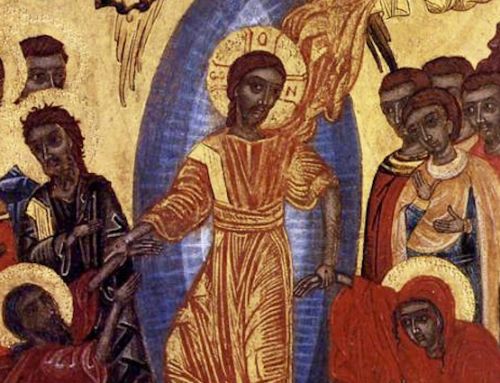 Unborn Child is the title of an album boldly released in 1974 by the rock duo Seals and Crofts at the height of their popularity. Ever hear of it? Didn’t think so.
Unborn Child is the title of an album boldly released in 1974 by the rock duo Seals and Crofts at the height of their popularity. Ever hear of it? Didn’t think so.
Even if you were a pop music fan during the 1970’s you likely have no recollection of the album, or its title song, in large part because Unborn Child was boycotted. But chances are good you’ve heard Seals and Crofts’ big hits, which include gold Billboard singles like “Summer Breeze,” “Diamond Girl,” and “We May Never Pass this Way Again.” In fact, you can still hear these songs today on oldies radio stations, or in grocery stores, elevators, or any establishment where soft-rock oldies are played.
The lyrics of the song “Unborn Child” were offered to Seals and Crofts by Lana Day Bogan, the wife of the duo’s recording engineer. She had seen a documentary about abortion and was moved to write a poem that began:
Oh little baby, you’ll never cry, nor will you hear a sweet lullabye.
Oh unborn child, if you only knew just what your momma was plannin’ to do.
You’re still a-clingin’ to the tree of life, but soon you’ll be cut off before you get ripe.
Oh unborn child, beginning to grow inside your momma, but you’ll never know.
Oh tiny bud, that grows in the womb, only to be crushed before you can bloom.
Mama stop! Turn around, go back, think it over.
Now stop, turn around, go back, think it over.
Stop, turn around, go back think it over.
At Bogan’s suggestion, Jim Seals put the poem to music.
As you can imagine, coming in the wake of the Supreme Court’s Roe v. Wade decision, Unborn Child was greeted by a lot of raw emotion. And the album was quickly suppressed. There were boycotts of the song by radio stations and picketing of Seals and Crofts concerts by pro-abortion groups. As we all know, the Roe decision not only legalized abortion, but served to stoke bitterness and deep division throughout American society.
Dash Crofts told interviewer Bill de Young in 1993: “Warner Brothers warned us against it. They said, ‘This is a highly controversial subject, we advise that you don’t do this.’ And we said, ‘But you’re in the business to make money; we’re doing it to save lives. We don’t care about the money.’”
According to de Young, “The critics tore the record to pieces, and Seals and Crofts with it. . . . Unborn Child hurt Seals and Crofts’ reputation—it was as if they had crossed that thin line, that sacrosanct divider that separated their music from their religious beliefs.”
Jim Seals and Dash Crofts wrote their music to reflect—though never to proselytize—their Bahà’í faith, which sees all humanity as connected in one family. They understood the unborn child to be simply a part of that universal whole. But their detractors, well, not so much.
The controversy definitely lowered the profile of Seals and Crofts and slowed down their career. Yes, they were able to follow Unborn Child with a few more albums and a few more songs that charted well at a time when the pro-abortion lobby was just gearing up to silence all opposition. Nevertheless, Unborn Child was very politically incorrect and Seals and Crofts paid the price for that.
Forty years later, the decision to release Unborn Child looks even more courageous and wise. As the nation continues to rethink the wisdom of Roe v. Wade, we might wonder: Could Unborn Child experience a rebirth?
In essence, Seals and Crofts chose to shun worldly success in favor of performing a beautiful act of mercy. As Crofts himself said, “I think we got more good results out of it than bad because a lot of people called us and said, ‘We’re naming our children after you, because you helped us decide to save their lives with that song.’ That was very fulfilling to us.”
Indeed, what a magnificent choice.
Books on the topic of this essay may be found in The Imaginative Conservative Bookstore. Republished with gracious permission of Human Life Review.







What a wonderful legacy they leave…
An excellent article! And it exposes that the hateful nature of the left wing hasn’t changed any in 40 years.
I had no idea. I’m going to go and buy the album right now. I assume it’s on Amazon.
Hi Stella. Thank you for the article. My mom, Lana, was the lyricist you spoke of in the article and Dash Crofts is my uncle (he used to be married to my mom’s sister). I wanted to add a little bit more information too help paint the full picture, especially with regard to the Baha’i view of abortion. You’re absolutely right that this song changed the trajectory of Jimmy and Dash’s career. I was very young when this album came out but I’ve since talked to my mom and Jimmy about it. Jimmy expressed zero regret about its release, while my mom did feel partly responsible for all the criticism they received over its release. The teachings of the Baha’i Faith tell us that the soul comes into existence at the moment of conception. This is probably the key issue for people when arguing whether or not the act of abortion is actually taking a soul. Baha’is believe the soul does exist as soon as a child is conceived. That being said, the Baha’i Faith also allows for an abortion in the cases of incest, rape, or if the life of the mother is at risk. Based on this song, I bet a lot of people didn’t know that. Thanks again for the article. I never would have expected to see anything written about this song! It was nice to see my moms name published as well!
Christopher, Thank you so much for filling me in on all of this! A year has passed, and I just saw your comment because I didn’t realize this story was also posted at The Imaginative Conservative. (It originally ran at The Human Life Review.) My hope is that your mother — the genesis of this song — has no more regrets. Seals and Crofts not only chose bravery in the face of what they knew would be criticism, but they saved lives through your mother’s words. They had a depth of vision that most do not. I would love to follow up at some point. And I appreciate the additional background you give on Baha’i beliefs on life. I don’t know if you’ll see this, but just wanted to post anyway. All the best, Stella
Christopher, very well spoken! Your cuz.
Music at a time when drugs and sex were the content of most lyrics, and here is a song suppressed by an industry which has failed miserably. Wonderful story, and a new appreciation of these musicians and their courage.
Thank you for “digging” this fascinating story up. I remember Seals & Crofts I enjoyed their music even as my ear was tuned more into jazz and the big band rock groups (BST and Chicago). They took a courageous stand for being “secular” artist and took the hit for it. Thanks for contributing to the pro-life archives!
Such a beautiful song.
There are a few rock/pop anti-abortion songs here and there. This one is more forthright than most… Here’s two others I once noticed: https://www.firstthings.com/blogs/firstthoughts/2011/11/carls-rock-songbook-are-there-anti-abortion-rock-songs Readers aware of any others?
I absolutely love this song, and have ever since playing it on my 8-track 42 years ago. I saw Seals & Crofts perform at the Arie Crowne Theatre in Chicago as well as Jimmy’s brother Dan (England Dan) & John Ford Coley at Ravinia Festival. The song has a fantastic outdo, and I really wish that it could be used in present day Pro-life commercials.
Unborn Child did NOT advocate for making abortion illegal. It only asked woman to consider their situation seriously and to “go back and think it over”. The choice was still theirs. But in a world that tries to move everyone to one extreme position or another, their moderate perspective was largely misunderstood.